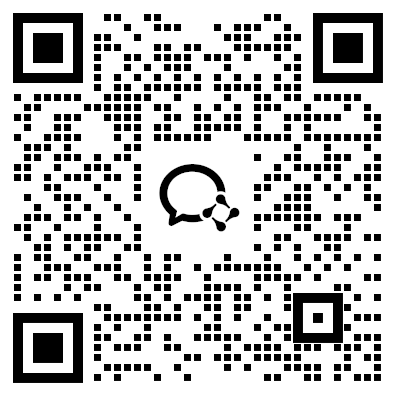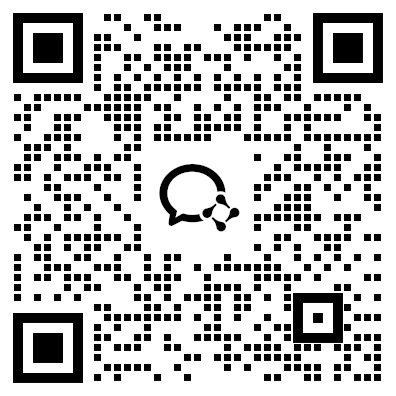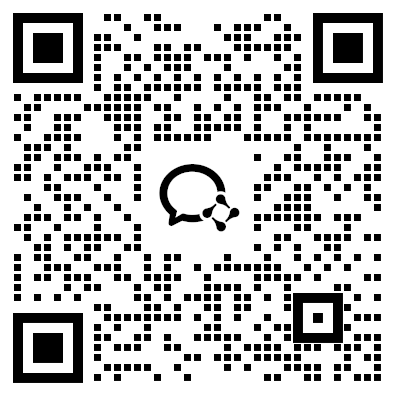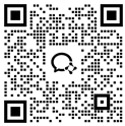选课中心NEW
7099人选课
SAT【0】元讲座
免费学
托福【0】元讲座
免费学
SAT模考网站HOT
39209人预约
托福备考练习HOT
39209人预约
SAT辅导课程NEW
免费报名
AP辅导课程NEW
立即报名
中学生托福课程NEW
立即报名
大学生托福课程NEW
立即报名
【定制】1v1
私人订制
【资料】考前冲刺
精

扫码添加助教
免费领取
备考资料大礼包

扫码关注公众号
为了帮助大家高效备考SAT,新东方在线SAT频道为大家带来SAT写作范文积累:popular culture,希望对大家SAT备考有所帮助。更多精彩尽请关注新东方在线SAT频道!
From the November 2009 SAT, defines “popular culture’’ broadly:
Popular culture refers to television shows, movies, books, musical selections, artworks, products, activities, and events that appeal to the interests and desires of large numbers of people. Popular culture tells us a lot about the people of a society. Some people may criticize popular culture or deny its influence on their lives, but one thing is clear: popular culture typically displays the ideas and principles that people value most.
Are the values of a society most clearly revealed in its popular culture?
This SAT prompt, from October 2005, seems to almost foresee the rise of Hollywood-fueled Twitter feeds:
1. Celebrities have the power to attract “communities” of like-minded followers; they provide an identity that people can connect to and call their own. Celebrities are trusted; they stand for certain ideas and values to which followers can express allegiance.–Adapted from William Greider, “Who Will Tell the People?”
2. Admiration for celebrities is often accompanied by contempt for “average” people. As we focus on the famous, other people become less important to us. The world becomes populated with a few “somebodies” and an excess of “near-nobodies.”
–Adapted from Norman Solomon and Jeff Cohen, “Wizards of Media Oz”
Is society’s admiration for famous people beneficial or harmful?
Here, from December 2006, is an SAT prompt on media and reality that could be a companion to the more recent TV-show prompt:
All around us appearances are mistaken for reality. Clever advertisements create favorable impressions but say little or nothing about the products they promote. In stores, colorful packages are often better than their contents. In the media, how certain entertainers, politicians, and other public figures appear is more important than their abilities. All too often, what we think we see becomes far more important than what really is.
Do images and impressions have too much of an effect on people?
And then, in October 2009, SAT-takers were asked to opine on the state of the news:
Good news is, for the most part, no news. It is not sufficiently compelling or important to make leading stories and front pages in the media, certainly not as often as bad news. Bad news sells, or so it seems from the books, newspapers, and television reports that fill our lives. But in this endless focus on the bad, the media present a distorted view of the world.
–Adapted from Richard B. McKenzie, “The Paradox of Progress: Can Americans Regain Their Confidence in a Prosperous Future?”
Do books, newspapers, and other media focus too much on bad news?
Finally, that same month, other takers of the SAT were asked about something near and dear to many, but perhaps not all: their cellphones:
An Internet phone service is offering unlimited free telephone calls for anyone who signs up. There is only one catch: the company will use software to listen to customers’ phone conversations and then send customers advertisements based on what they have been talking about. For example, if they talk about movies with their friends, advertisements for movies will appear on their computer screens. Commentators have voiced concern about customers’ giving up their privacy in exchange for phone service.
Should people give up their privacy in exchange for convenience or free services?
And here, at last, is the one, similar prompt that administrators of the ACT gave to us:
As the amount of time students spend watching television increases, teachers debate whether television channels should be required to devote at least 20 percent of their programming to educational shows about topics such as science and history.
Some teachers support this policy because they think television is an ideal teaching instrument with a very large and very receptive audience. Other teachers do not support this policy because they think what is considered educational by some could be considered merely entertaining by others.
In your opinion, should television channels be required to devote at least 20 percent of their programming to educational shows?
In your essay, take a position on this question. You may write about either one of the two points of view given, or you may present a different point of view on this question. Use specific reasons and examples to support your position.
以上就是关于“SAT写作范文积累:popular culture”的内容,更多精彩内容,请关注SAT频道!
SAT水平能力测试【0元免费测试】

 资料下载
资料下载
【SAT】SAT官方指南题目合集10套
发布时间:2024-04-15添加新东方在线美本助教号
回复【美本资料】获取
SAT阅读+文法+数学专项题型练习册
发布时间:2024-05-31添加新东方在线美本助教号
回复【美本资料】获取
机考SAT-可汗练习题
发布时间:2024-02-29添加新东方在线美本助教号
回复【美本资料】获取
机考SAT-CB官方样题
发布时间:2024-02-29添加新东方在线美本助教号
回复【美本资料】获取
《学科留学百问 (AP-IB-A Level)》
发布时间:2023-02-22添加新东方在线美本助教号
回复【美本资料】获取
2024中国学生留学备考白皮书
发布时间:2023-02-22添加新东方在线美本助教号
回复【美本资料】获取
2023北美考试一本通高中篇
发布时间:2023-02-22添加新东方在线美本助教号
回复【美本资料】获取
新东方SAT阅读讲义
发布时间:2023-02-06添加新东方在线美本助教号
回复【美本资料】获取
2023北美考试一本通高中篇
发布时间:2024-02-29关注美本留学家长帮微信订阅号
回复【美本资料】获取
2024中国学生留学备考白皮书
发布时间:2019-12-19添加新东方在线美本助教号
回复【美本】获取
《学科留学百问 (AP-IB-A Level)》
发布时间:2019-12-19添加新东方在线美本助教号
回复【美本资料】获取
机考SAT-CB官方样题
发布时间:2019-12-19添加新东方在线美本助教号
回复【美本资料】获取
机考SAT-可汗练习题
发布时间:2019-12-19添加新东方在线美本助教号
回复【美本资料】获取
SAT阅读+文法+数学专项题型练习册
发布时间:2019-11-28添加新东方在线美本助教号
回复【美本资料】获取

添加美本助教
即可获取美本资料大礼包

 推荐阅读
推荐阅读
在2024年的QS学科排名中,英国大学再次展现了他们在教育领域的卓越表现。这次排名中,英国大学在16个学科领域取得了世界第一的成绩,为其在全球教育界树立了新的标杆。
来源 : 网络整理 2024-04-23 11:16:49 关键字 : QS学科排名,英国大学qs学科排名
市场营销作为当代商业领域中至关重要的学科之一,一直备受关注。为了帮助读者更好地了解2024年全球市场营销学科的最新发展和排名情况,本文将介绍QS世界大学市场营销学科的排名榜单,并提供相关的官网链接供读者参考。
来源 : 网络整理 2024-04-23 10:21:37 关键字 : 市场营销学科排名,qs学科排名
备受关注的2024年酒店管理学科全球大学排名榜单终于揭晓,给全球学子带来了巨大的惊喜和期待。作为酒店管理学科领域的权威排行榜,该榜单汇集了各大知名院校和学者的投票和研究结果,为学生们提供了一份权威的选校参考指南。
来源 : 网络整理 2024-04-23 10:15:16 关键字 : 酒店管理学科排名,qs学科排名
每年QS世界大学统计与运筹学学科排名榜单都受到广泛关注,2024年的排名榜单也引起了极大的关注和讨论。首先,让我们来看一下2024QS世界大学统计与运筹学学科排名榜单的前几名。
来源 : 网络整理 2024-04-23 10:10:12 关键字 : 统计与运筹学学科排名,qs学科排名
随着2024QS世界大学经济与计量经济学学科排名榜单的发布,我们可以全面了解到这一领域的最新动态。本文将为您详细介绍2024QS世界大学经济与计量经济学学科排名榜单,解读其中的重点内容,并对我国相关大学在排名中的表现进行分析。
来源 : 网络整理 2024-04-23 10:03:55 关键字 : 经济与计量经济学学科排名,qs学科排名
最新发布的2024QS世界大学社会政策与行政管理排名榜单已经震动了全球教育界。这一排名榜单是依据世界知名教育机构QS(Quacquarelli Symonds)的权威数据和专业评估,为我们提供了一份准确且独具参考价值的全球大学排名。
来源 : 网络整理 2024-04-22 17:01:59 关键字 : 社会政策与行政管理学科排名,qs学科排名
社会学作为一门独具特色的学科,对于了解人类社会的发展和变迁起着举足轻重的作用。每年,QS世界大学社会学排名榜单会揭晓全球各大高等院校在这一领域的表现,并成为了各界人士瞩目的焦点。今天,让我们一起来揭晓2024年的榜单,并深入探讨排名的背后故事。
来源 : 网络整理 2024-04-22 16:56:00 关键字 : 社会学学科排名,qs学科排名
在当今竞争激烈的社会中,选择一所优秀的大学对我们的未来发展至关重要。随着法律行业的日益发展和全球化的趋势,了解和掌握国际上优秀的法律学府成为了无比重要的事情。而2024QS世界大学法律与法律研究排名榜单正是我们选择合适学府的权威指南。
来源 : 网络整理 2024-04-22 16:51:49 关键字 : 法律与法律研究学科排名,qs学科排名
2024QS世界大学教育与培训排名榜单,作为权威的评估之一,给出了全球范围内的学府排名。本次榜单覆盖了各个学科领域,综合评估了学校的教学质量、师资水平、科研实力等多个方面,旨在为学生和家长提供一个参考。
来源 : 网络整理 2024-04-22 16:48:08 关键字 : 教育与培训学科排名,qs学科排名
政治学作为一门研究人类政治行为、政治制度、政治思想等内容的学科,一直备受关注。近日,2024QS世界大学排名公布了最新的政治学学科排名榜单,引起了广泛的关注和讨论。
来源 : 网络整理 2024-04-22 16:38:53 关键字 : 政治学学科排名,qs学科排名

自动领取备考资料大礼包

1. 打开手机微信【扫一扫】,识别上方二维码;
2.添加【美本助教】,自动领取留学备考资料大礼包。

 SAT直播/精讲课
SAT直播/精讲课
 托福精讲系统课(旗舰版)
托福精讲系统课(旗舰版)
 托福直播VIP小班
托福直播VIP小班
 公开讲座
公开讲座
真实了解自己的水平,为备考做好规划!
价格 : ¥0元
真实了解自己的水平,为备考做好规划!
价格 : ¥0元
真实了解自己的水平,为备考做好规划!
价格 : ¥0元

 资料下载
资料下载
添加新东方在线美本助教号
回复【美本资料】获取
添加新东方在线美本助教号
回复【美本资料】获取
添加新东方在线美本助教号
回复【美本资料】获取
添加新东方在线美本助教号
回复【美本资料】获取
添加新东方在线美本助教号
回复【美本资料】获取
添加新东方在线美本助教号
回复【美本资料】获取
添加新东方在线美本助教号
回复【美本资料】获取
添加新东方在线美本助教号
回复【美本资料】获取
关注美本留学家长帮微信订阅号
回复【美本资料】获取
添加新东方在线美本助教号
回复【美本】获取
添加新东方在线美本助教号
回复【美本资料】获取
添加新东方在线美本助教号
回复【美本资料】获取
添加新东方在线美本助教号
回复【美本资料】获取
添加新东方在线美本助教号
回复【美本资料】获取

自动领取备考资料大礼包

1. 打开手机微信【扫一扫】,识别上方二维码;
2.添加【Ella助教】,自动领取留学备考资料大礼包。
 阅读排行榜
阅读排行榜
 相关内容
相关内容